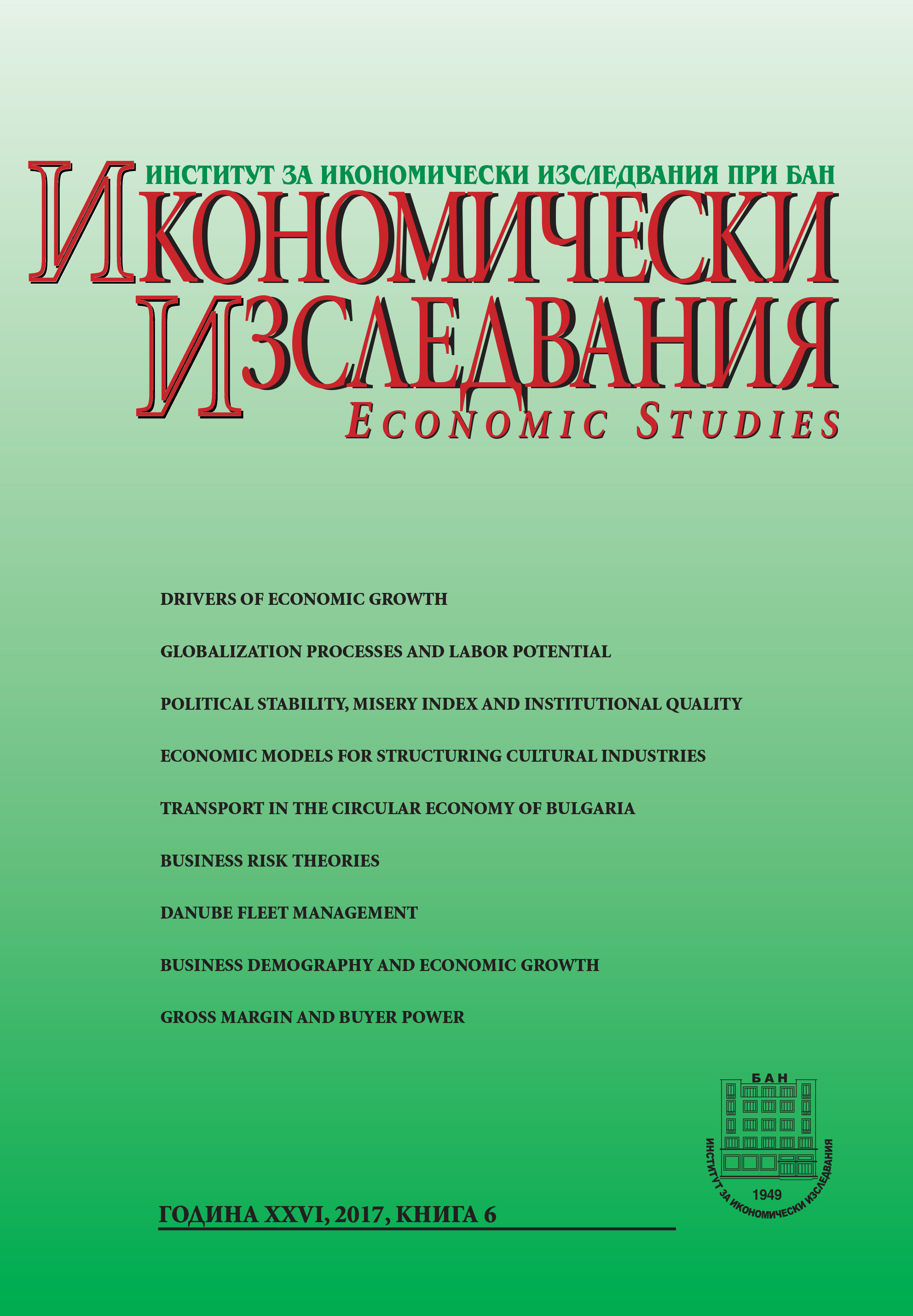Political Stability, Misery Index and Institutional Quality: Case Study of Middle East and North Africa
Political Stability, Misery Index and Institutional Quality: Case Study of Middle East and North Africa
Author(s): Lotfali AgheliSubject(s): Economy
Published by: Институт за икономически изследвания при Българска академия на науките
Keywords: political stability; misery index; institutional quality; MENA; Panel data
Summary/Abstract: The Middle East and North Africa (MENA) are of various political regimes with different governance levels. This region is a multi-lingual, populous and resource-abundant area in the world, too. This paper aims to explore the determinants of political stability (instability) in the MENA over the period 2000-2014. The estimation of panel data model indicates political stability stems from natural resources rents, socioeconomic status and institutional quality. The proper allocation of these rents to productive investments, and welfare-enhancing efforts, the decrease in misery index and any increase in government effectiveness and/or rule of law result in political stability in the region. The policy makers in the region need to make sound fiscal and monetary policies in order to reduce gender and income inequalities and invest in enhancing human prosperity. Regarding civil rights and freedoms, and establishment the voluntary and nongovernmental organizations are socio-political requirements in shifting this developing bloc to high levels of development.
Journal: Икономически изследвания
- Issue Year: 2017
- Issue No: 6
- Page Range: 30-46
- Page Count: 17
- Language: English

